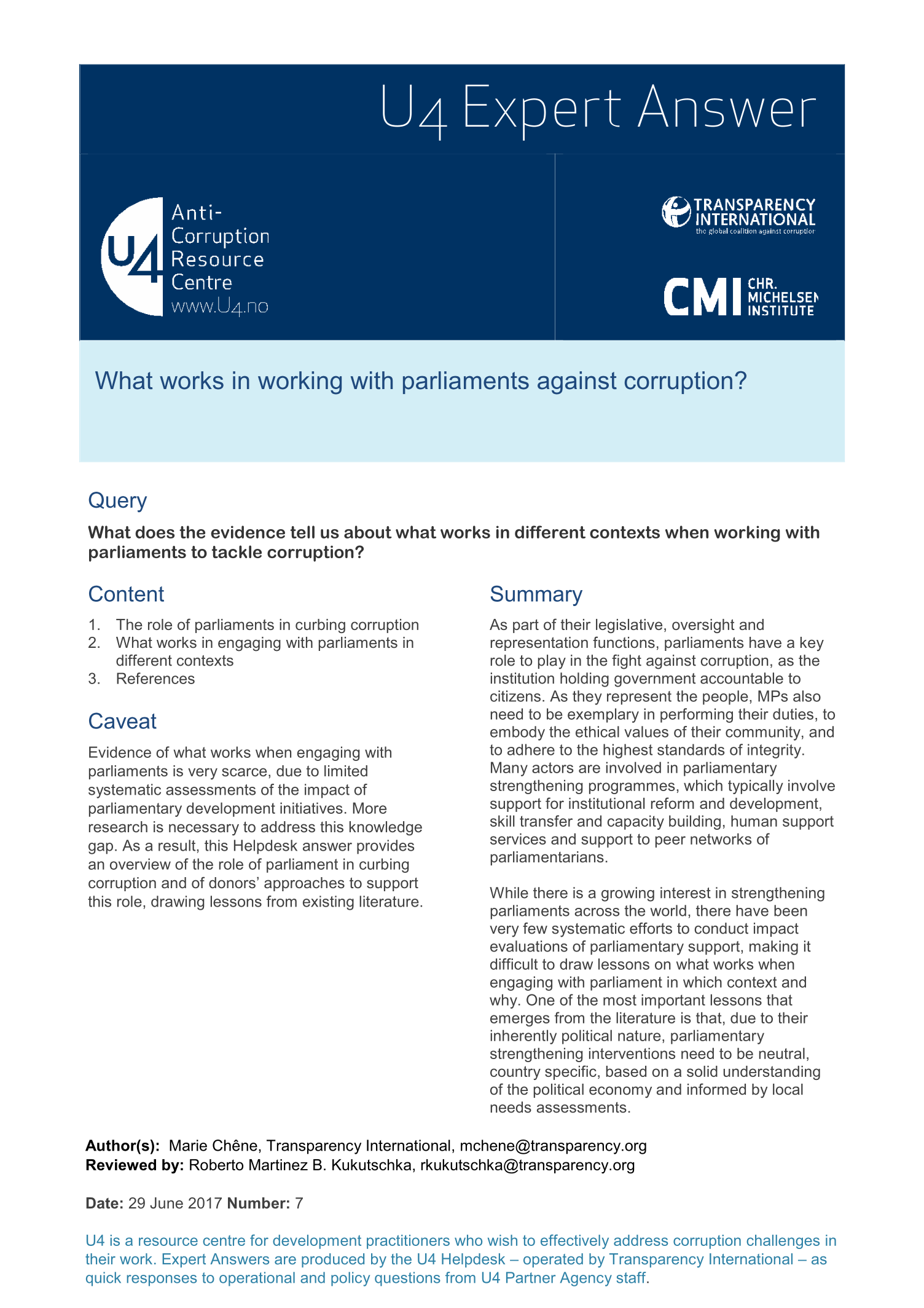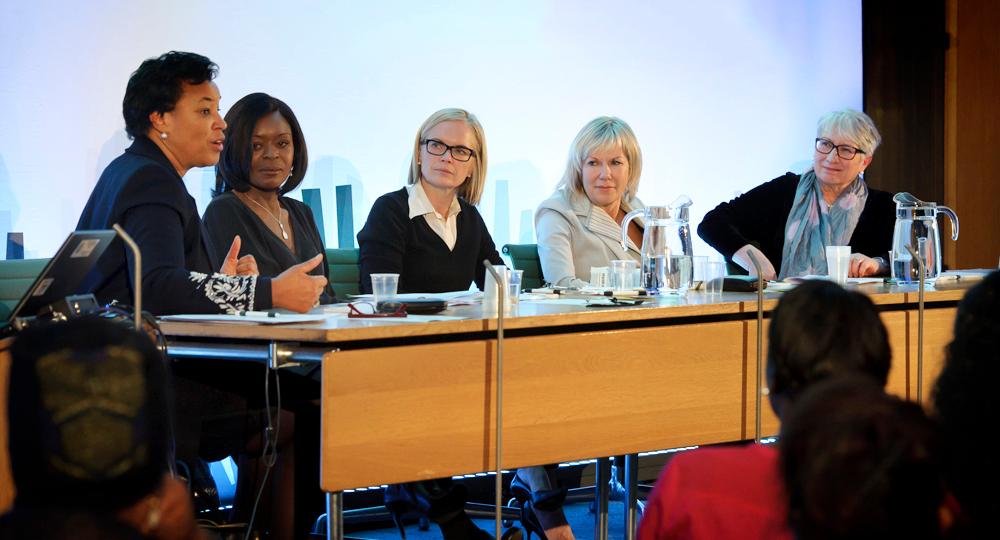U4 Helpdesk Answer
What works in working with parliaments against corruption?
As part of their legislative, oversight and representation functions, parliaments have a key role to play in the fight against corruption, as the institution holding government accountable to citizens. As they represent the people, MPs also need to be exemplary in performing their duties, to embody the ethical values of their community, and to adhere to the highest standards of integrity. Many actors are involved in parliamentary strengthening programmes, which typically involve support for institutional reform and development, skill transfer and capacity building, human support services and support to peer networks of parliamentarians.
While there is a growing interest in strengthening parliaments across the world, there have been very few systematic efforts to conduct impact evaluations of parliamentary support, making it difficult to draw lessons on what works when engaging with parliament in which context and why. One of the most important lessons that emerges from the literature is that, due to their inherently political nature, parliamentary strengthening interventions need to be neutral, country specific, based on a solid understanding of the political economy and informed by local needs assessments.

Cite this publication
Chêne, M. 2017. What works in working with parliaments against corruption? Bergen: U4 Anti-Corruption Resource Centre, Chr. Michelsen Institute (U4 Helpdesk Answer 2017:7)
Disclaimer
All views in this text are the author(s)’, and may differ from the U4 partner agencies’ policies.
This work is licenced under a Creative Commons Attribution-NonCommercial-NoDerivatives 4.0 International licence (CC BY-NC-ND 4.0)
